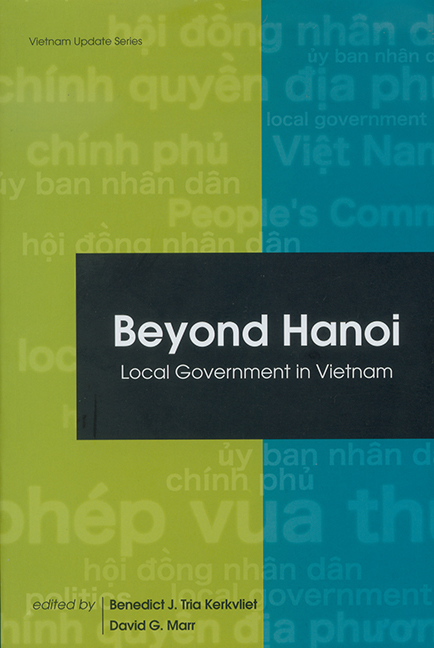The context of this book is discussions and controversies regarding governance in Vietnam today. Although an old concept, governance has attracted new attention among academics, development agencies, and government offices around the world. It means, according to one widely cited definition, “the exercise of political, economic and administrative authority to manage a nation's affairs” and includes “the complex mechanisms, processes, relationships and institutions through which citizens and groups articulate their interests, exercise their rights and obligations and mediate their differences”. This highlights a feature in many analyses and uses of the concept: governance includes both government and citizens. It is a process in which government officials and institutions make and implement policies, rules, and regulations while at the same time being accountable to the public. Bad policies and poor accountability equal bad governance. Good policies and accountability mean good governance.
The rhetoric of the Communist Party in Vietnam advocates good governance. Party leaders claim to have high regard for what people want and need; and they take pride in trying to make policy that serves the people and the nation as a whole. These orientations are encapsulated in such well publicized slogans as government “for the people, by the people, and of the people” (cho dan, do dan, vi dan) and “the people know, discuss, implement, and evaluate” (dan biet, dan ban, dan lam, dan kiem tra). At the same time, Vietnamese officials acknowledge considerable shortcomings. To improve the situation, they have taken numerous measures, among them national campaigns against corruption and for “grassroots democracy”. Foreign aid agencies have been giving considerable development assistance to Vietnam aimed at improving “governance” — both the ability of government to make and implement policy and the ability of citizens to know about and influence what officials do. Meanwhile, criticisms inside and outside the country range from saying that officials are not doing enough to contending that good governance under Communist Party rule is impossible.
Although governance is this book's context, it is too vast a subject to examine here. More manageable, colleagues and I decided, is to look at topics related to governance.
